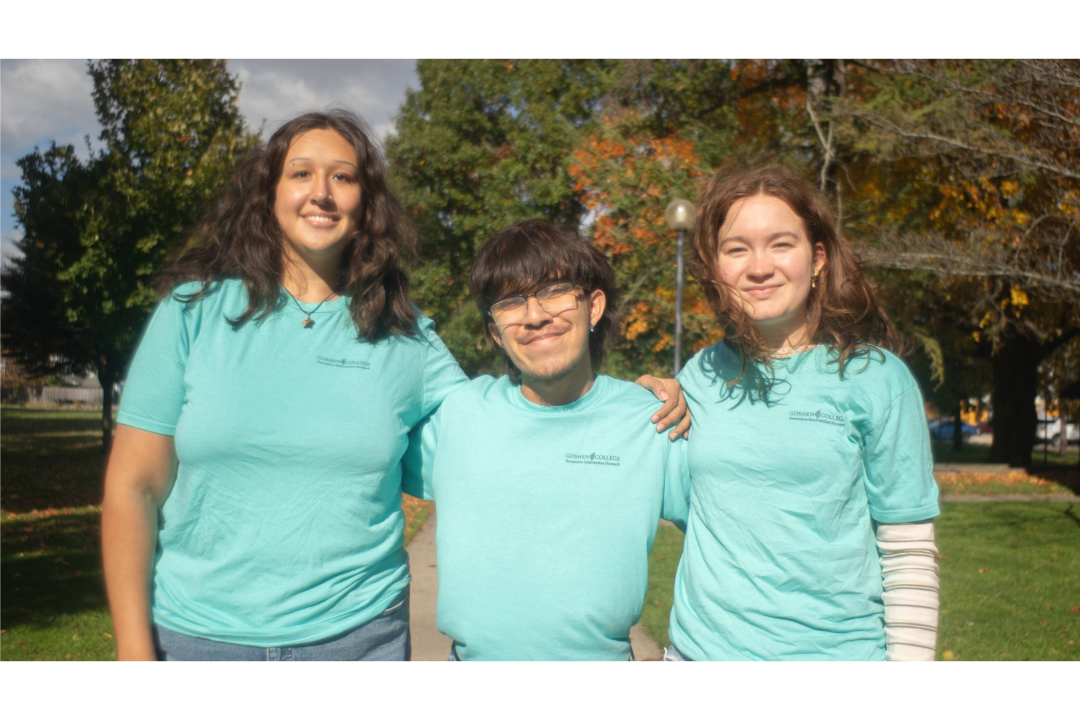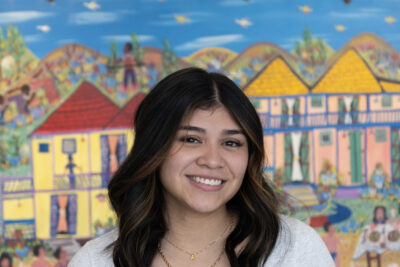Christina Elizalde is a second year elementary education major. She’s involved with Teach EC, LSU, and PIN. She likes studying in the Connector with friends or Westlawn for a quieter space. She also enjoys going to games and campus events when possible.
“As someone with their own story, I know how important the curriculum PIN teaches is. The first time I received any bystander training was during the Identity, Culture and Community presentations, a year or two after I was raped. When learning the statistics about interpersonal violence I was upset, angry and generally demoralized. However, I also felt empowered with the information I received. I felt that I was better prepared to respond to situations I might find myself in, and that I might be able to help prevent harm being done to others.When PIN applications went out, I didn’t plan to sign up because I’m not a fan of public speaking and I was scared of speaking in front of an ICC classroom. However, Fernando Daza encouraged me to apply and I’m so glad I did. I’m so proud of the work PIN does, and the passion each person in PIN has.
Although I know it’s hard for PIN to reach every student, I felt accomplished, proud and hopeful after presenting to the freshman ICC classrooms this year. I truly believe that equipping more people with the knowledge of active bystander intervention methods, and what consent is will benefit the entire campus and create a space where more people feel safe and welcome.
I want to encourage anyone who is even slightly interested in PIN, helping others, social justice, advocacy or improving campus culture to send in an application!”
Demetrio Garcia is a 3rd year sociology major with a minor in women’s and gender studies. He’s a part of the men’s cross country team and the men’s track team. He’s the president of One Circle, and a member of PIN, LSU, Advocates and a healthy masculinity group on campus. If you can’t find him running, you’ll find him with his roommates Jesse Bontrager and Max Estep
“I didn’t grow up seeing a lot of males talk about care, vulnerability or healing. In my culture, silence often meant strength, especially for men. When I joined PIN, I slowly started to unlearn that. I realized that being a male survivor didn’t make me weak. It made me someone with a story worth sharing. PIN has given me the space to lead differently. Not by being in charge, but by being present — helping create a space where others who have been hurt or silenced could feel safe enough to speak. That sort of leadership matters and is personal to me. I believe that my presence in PIN as a man matters because it shows the interruption of a pattern. It tells other men that they don’t have to choose between being soft and strong. It matters because someone else might see me and think, ‘Maybe I can be a part of this too.’ PIN has helped me reconnect with myself in a way that feels true to who I am. We need more male representation to help build a campus where care isn’t gendered and healing isn’t hidden. If you’ve ever wanted to lead in a way that feels genuine, if you’ve ever wanted to be a part of something that sees you, PIN wants YOU and is waiting. You don’t have to be perfect, you just have to be present!”
Julia Miller is a biochemistry major with a minor in women’s and gender studies. She is in the Pre-Health Club and likes to bake sourdough bread.
“PIN is essential to the fabric of Goshen College with a variety of groups represented by the members and the experience of bystander training tying first years through seniors together. We have members representing athletic teams, all kinds of student organizations and clubs, and students from so many different disciplines and majors. The practices of active bystanding and being positive role models influences students across campus in so many ways.
It also cannot be taken for granted the ways that students and faculty are lifted up with their roles in PIN, through the availability of credit for students as well as the building of valuable skills that are provided when we present a curriculum like Respect & Belonging at GC: An Active Bystander Workshop. This week during his workshops focused on domestic violence in higher education, Dr. Steven D. Parker praised the program and the ways that PIN has become “baked into the fabric” of the college.
This highlights one of PIN’s focuses, which is the peer-led education that has been shaped by years of feedback about what is needed and wanted for students to engage with on campus. I personally have noticed the ways that presenting the bystander intervention training has increased my confidence in communication. PIN provides students with the ability to equip other peers with the tools and knowledge to be active bystanders and positive influences in the groups that they are surrounded by, and it is such a wonderful process to be a part of.”



